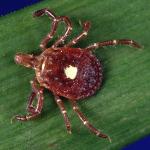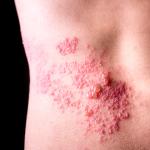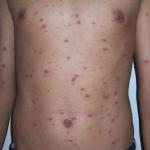When I was a kid, there was no chickenpox vaccine. Getting chickenpox -- along with the requisite oatmeal bath -- was seen as a childhood rite of passage. It wasn't uncommon for kids who were uninfected to hang out with kids who were.
shingles
Shingles develops in one out of every three adults who've previously had chickenpox. Luckily there's not one, but two vaccines, against the painful rash. So why aren't adults getting the shot?
Millennials don't have it easy, contrary to popular belief.
Perhaps the strangest medical phenomenon discovered in recent years is a link between the lone star tick and an allergy to red meat.
As we've explained in the past, shingles is a reactivation of the chickenpox virus, varicella zoster, that results in an extremely painful eruption of blisters along a ne
When I was a child, getting chickenpox was a rite of passage. Everyone had to get it, sooner or later, and sooner was preferable.
Anyone who has had chickenpox is at risk for shingles.
Shingles, also called herpes zoster, is a reactivation of the dormant chickenpox virus in the body.







